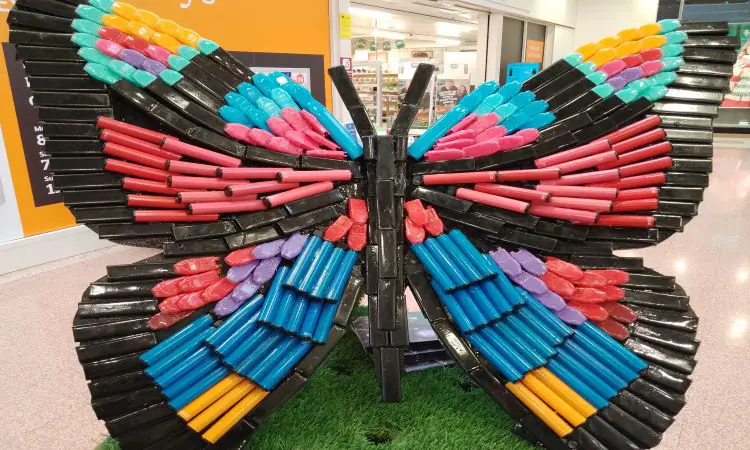Disposable vapes create new challenges

Charlie Gershinson investigates the environmental consequences of the rapid rise in disposable vape consumption, how electrical waste should be recycled and the black market of vaping.
Disposable vapes have skyrocketed in popularity in recent years. Since their first introduction as e-cigarettes in 2002, young people have especially taken to them as alternatives to traditional cigarettes, with the number of vapers increasing from seven million in 2011 to eighty-two million in 2021. As this social phenomenon has become more mainstream, there have been increased concerns around the environmental and economic repercussions as vaping continues its rapid rise.
There has been a rise in the number of disposable vapes thrown away not only as vaping of all kinds increases but as users of reusable vapes prefer the cheaper, easier to use and more available disposable varieties. Thirty-seven per cent of people who have bought vapes in the past year bought disposable vapes, increasing to fifty-two per cent for 18–34-year-olds.
1.3 million disposable vapes are thrown away improperly each week, equal to twenty-two football pitches
Perhaps the most imminent worry around vaping is the environmental damage that disposable vapes cause. As more people use disposable vapes, they are more likely to dispose of them improperly: fifty per cent of disposable vapes are not properly disposed of compared to thirty-three per cent for all vape varieties. 1.3 million disposable vapes are thrown away improperly each week, the same as twenty-two football pitches.
The combination of valuable lithium batteries and copper as well as plastic means that disposable vapes are classified as Waste Electrical and Electronic Equipment (WEEE). As such, they must be specially disposed of either at household recycling centres or at the shop where you bought them.
However, many users have been unaware of the need to use these special recycling units, as there is little to no information informing them of such. Material Focus, a not-for-profit organisation focusing on recycling e-waste, published a July 2022 study detailing the lack of awareness around the need to recycle disposable vapes.
There is widespread lack of awareness of the need to recycle disposable vapes at WEEE disposal points
There has been increased advertising by some local authorities, such as a prominent WEEE disposal unit outside the Sainsbury’s in Exeter’s Guildhall Shopping Centre. Scott Butler, Executive Director at Material Focus said “We need to take urgent action now and ensure that they get recycled. You can find your nearest recycling point by visiting https://www.recycleyourelectricals.org.uk/”.
Vaping has also caused economic challenges as disposable vapes create a new black market within the UK. A recent KentOnline investigation found five illicit disposable vape retailers in Canterbury High Street alone. This has caused fears due to the lack of knowledge users have of the chemicals used in these unknown vape bars, which are often shipped in under the radar from overseas and have not been subject to any UK regulation. These illegal vape bars can be typically identified by the number of puffs in each of them. The vast majority of disposable vapes have only 600 puffs while one found on the black market could have anywhere up to 7,000 puffs.
UK Vaping Industry Association (UKVIA) CEO John Dunne says he is “yet to come across a high street where I can’t easily find” an outlawed e-cigarette. “You’re looking at this black-market generating millions of pounds per week and at least £100 million a year”. He added that “Consumers should buy products that have gone through the MHRA as they’ve had toxicology tests, ingredient registrations and all that.”


